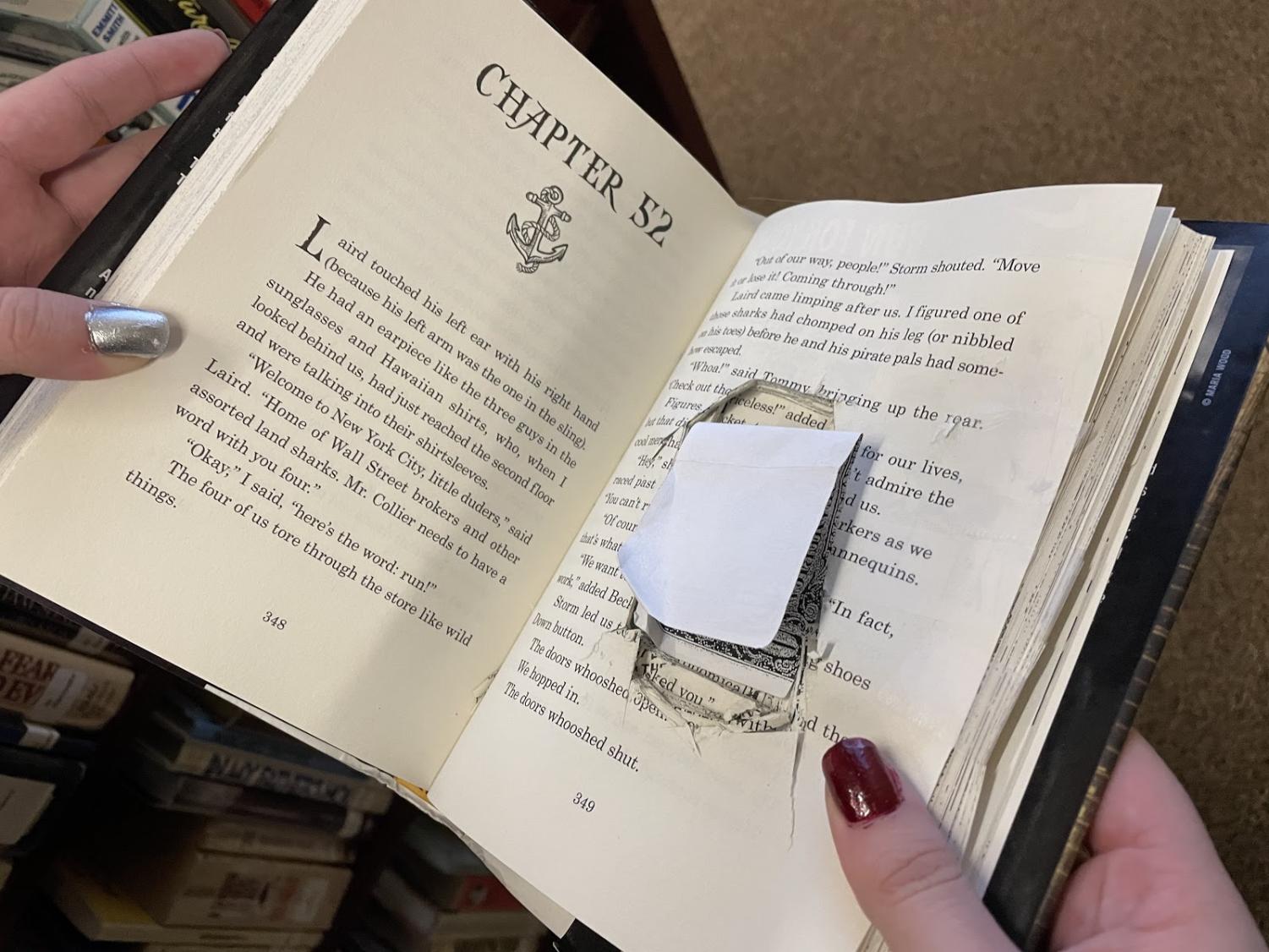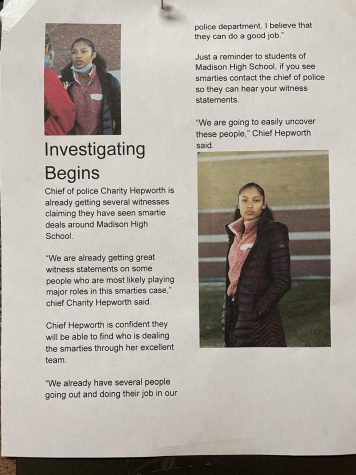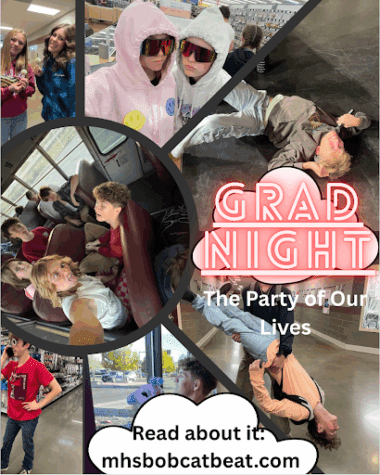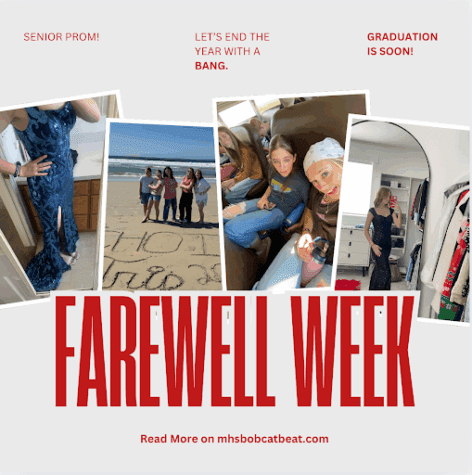Candy Incarceration

Smartie money hidden in a book in the library
Drug dealing. Trickery. Investigations. Actual learning? The Smarties Trials depict the American court system from police officers in the field, to judges in the court house. This MHS tradition gets students involved in constitutional law.
“About 30 years ago, what I had been doing was just using a script where you buy a court case and witnesses just read from a script, and I just felt like the kids weren’t understanding how important the constitution was so I made this up,” Mrs. Wolff said.
The purpose of the trials is to make learning about constitutional law interesting and immersive for high school students.
“It’s a mock criminal trial and leading up to it is to learn about the constitutional law,” Wolff said.
The process is so effective that some students who have been lawyers in the trials became actual lawyers in real life.
“I’ve had quite a few students that were lawyers in the smarties case become lawyers,” Wolff said.
The trials take students through the entire process of prosecution starting from dealing of the ‘smarties’ to an actual trial where real lawyers come to help.
“I have a law firm, Rigby and Andrus, whose lawyers come in and act as the judges and they take the students through the process and answer questions they have about the trial,” Wolff said.
The students from each class hour get assigned different positions like police officers or attorneys. One of the most crucial roles is the police chief who is in charge of all the officers.
“I’m the chief of police so everybody gives me evidence or their suspicions,” senior Kora Tavares said.
“I am a police chief, I contact my prosecuting attorneys and my police officers and tell which police officer to go undercover,” senior Charity Hepworth said.
Students who are dealers have to move their product and try their best not to get caught so they don’t have to go to court.
“I can’t tell a lot about the evidence but there are some interesting ways in which the evidence has been hid that hasn’t happened in the past,” Wolff said.
If a police officer has a suspicion, they have to request a search warrant- just as they would have to in real life.
“Police officers have to get warrants from Officer Bovie, myself, or judges that can issue warrants upon probable cause,” Wolff said.
Mrs. Wolff hopes that the students get life experience out of the case as well as learning about law.
“Hopefully most of them understand more about the jury process and their responsibility as a juror. The likeability is that most of us become a juror,” Wolff said.





